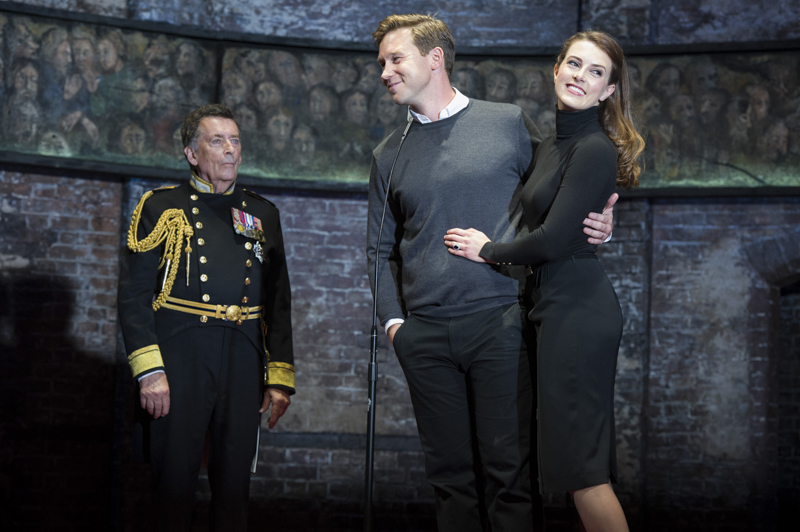
There was a time, not so long ago, when Prince Charles was considered a bit of a joke, what with his talking to plants and his rantings about carbuncular, modern architecture and ecological issues. After a life spent hanging around in a waiting room, with an appointment yet to be fixed, it is understandable that he would get a bit distracted. There was even talk of him giving up his right to the throne and letting Prince William have a go. But the tide has turned. The Prince of Wales is now seen to have been right in many things, to be an honest man, a man of integrity who will probably make a jolly good king after all.
Mike Bartlett’s play opens in the fairly near future with the funeral of Elizabeth II – the Queen is dead, long live the King. What Mr Bartlett has detected in this situation is a certain echo from days of yore. Shakespeare built a career on re-imagining the lives of British monarchs, the struggles for supremacy, the accessions and attendant powers and intrigues behind the thrones. So, why not treat this episode the same? And that is exactly what Bartlett has done; he has written a 21st century Shakespeare and jolly well it works too.
Within days of becoming king, Charles is asked to give the Royal Assent to a Bill which is designed, he believes, to gag the press. He refuses on principle and sets in train a constitutional crises and all the stock Shakespearian character come out to play. It was almost like the Reduced Shakespeare Company – one was constantly trying to spot the quotes and references. The most surprising was perhaps young Catherine, Duchess of Cambridge who, despite her demure exterior, turned out to be a right little Lady Macbeth, oh, and the ghost of Princess Di wafted across the stage a few times. They were all there – Camilla, William, a troubled hoody Harry and, of course, Charles himself. The characters, especially Charles, were not impersonations; none of the quirky, cuff-pulling idiosyncrasies were there. Robert Powell took on the part as he would that of any other Shakespeare king, imagining what the man would be like and creating the character. He is an actor who has the authority to carry a play and convincingly portrayed Charles’ convictions and integrity, as well as the imagined intransigence that would prove his downfall.
The staging was beautifully done. The setting by Tom Scutt and lighting by Jon Clark, consisted of a semi-circular, decaying towering brick wall. Is this crumbling structure a symbol of the monarchy or of the state itself? Some of the set pieces were nicely done, especially the funeral at the beginning which was enhanced, as was the whole play, by the stirring though slightly derivative, music of Jocelyn Pook. Possibly the most powerful scene was at the beginning of the second act with rioters protesting outside Buckingham Palace while a Spitting Image Charles squirmed around the stage on all-fours.
Despite the audience wanting it to be a comedy there were many important issues raised in this play, as well as all the betrayal and intrigue you would expect from Shakespeare. It would be interesting to see, a few hundred years from now, whether King Charles III will be performed together with Shakespeare alongside Henry V and Richard III and be treated in the same way. We are all destined to become history. ★★★★★ Michael Hasted 1st March 2016

